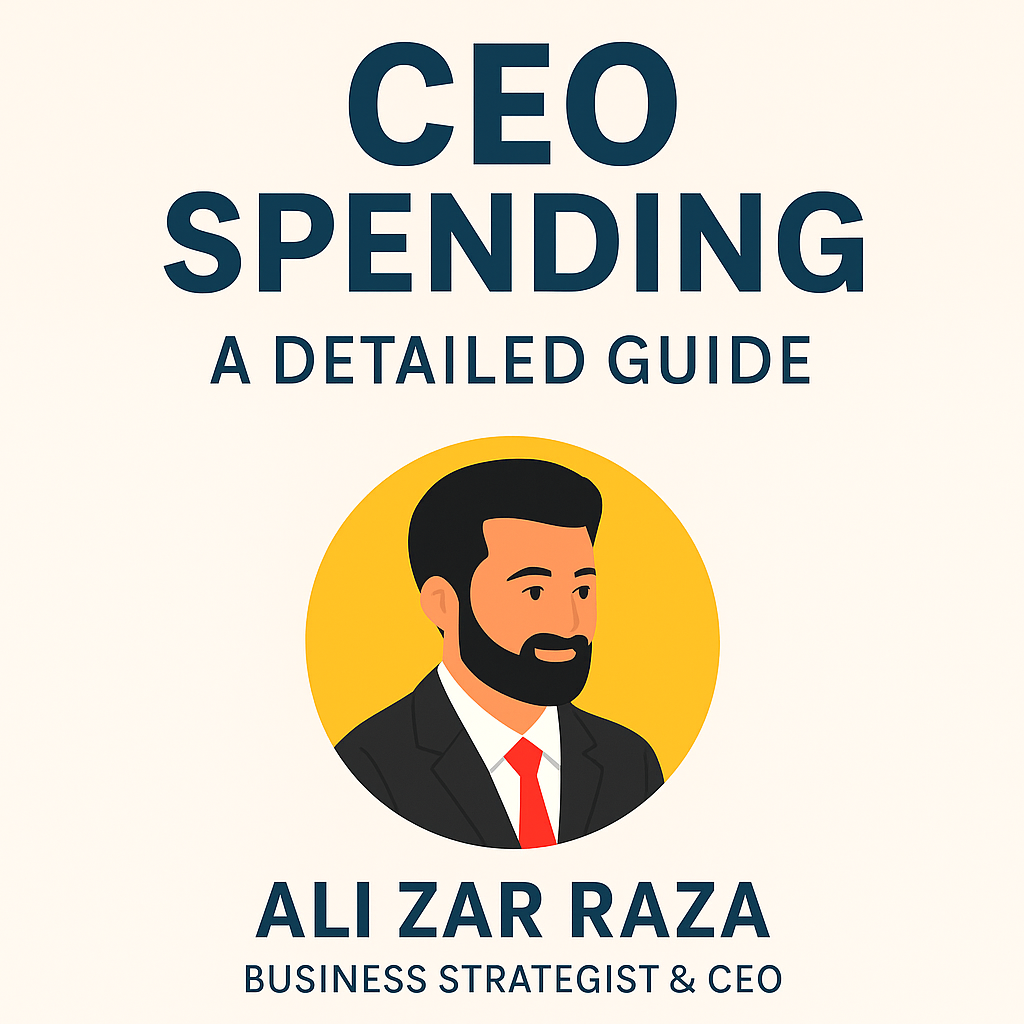Introduction: The Problem with CEO Spending
Ali introduces the issue that many young CEOs in Pakistan achieve early success but struggle with how and where to spend money. They often confuse personal wealth with business growth and end up making impulsive, emotionally-driven spending decisions, like unnecessary luxury trips or speculative investments.
Consulting for Business Growth
He emphasizes the importance of business consulting and mentions his paid consultation sessions. Many CEOs reach bottlenecks in marketing, branding, HR, or operations, and consultations help them navigate those challenges professionally.
First Principle: Spend on Talent and Culture (Jim Collins’ Principle)
Ali highlights that a CEO should prioritize spending on high-quality talent. Hiring average or low-cost employees might save money short-term but hurts the business in the long run. He explains how businesses should hire the best developers, technicians, and creative people—even if they cost more—because they compound the company’s long-term value.
He explains the economic paradox: CEOs try to maximize revenue and minimize cost but fail to realize that investing in top talent improves both metrics over time. He shares his own organizational structure: hire a high-level resource, pair them with interns or trainees, and within 3–6 months, they’ll build cost-effective talent in-house.
Building Culture as an Investment
A company’s culture should reflect the CEO’s own values and work ethic. He says remote teams can be managed effectively, but only if there’s a strong culture. Whether it’s a sports-like KPI-driven environment (his example) or a family-oriented one, culture needs structure, incentives, and leadership.
Culture sustains consistency. Once a company scales, the CEO can’t micromanage every process—culture becomes the invisible system that holds operations and values together. He urges CEOs to define and spend on organizational norms like “employee of the month,” incentives, or accountability systems.
Second Principle: The Lean Startup Approach
Ali discusses the danger of rapid scaling without experience or skill. He shares that some startups get VC funding early but fail because they expand too fast, accept projects outside their domain, and end up with dissatisfied clients. Instead, he recommends a lean, learning-first approach.
Start small. Take on manageable projects. Learn the process thoroughly—whether it’s production, content, or marketing—and slowly grow from there. Don’t take a million-dollar project if you haven’t done a thousand-dollar one properly.
He introduces the “fail-first” mindset, explaining that even if you’re not profitable in the beginning, you’re investing in learning curves that build credibility and capability.
Customer-Centric Investments
Any investment should tie directly to improving customer experience. For instance, if your goal is to build a 360° production house, start by mastering a single part of the chain like food reels, hire specialized team members, and work your way up.
He insists that CEOs should prioritize what will improve deliverables for customers, not what simply looks good (like expensive offices or gadgets). The long-term strategy should be focused on depth of expertise, not vanity metrics.
Breaking the Pakistani CEO Mindset
Ali challenges the typical Pakistani mindset of “get maximum out of the first deal.” He urges CEOs not to aim for profit on their first project, especially when it’s outside their core expertise. Instead, spend to learn—develop the skill set now to build recurring income later. He credits this thinking to the “Razak Dawood Principle”—to treat the first-time domain work as training, not a revenue opportunity.
Third Principle: Maintain Business Liquidity (From “The Hard Thing About Hard Things”)
He highlights that most Pakistani entrepreneurs blur personal and business finances. The CEO must understand that the business is a separate entity. Spending business money on personal wants like iPhones or cars may feel rewarding but harms liquidity and long-term stability.
Ali stresses planning from day one. The business should always maintain net cash and categorize spending tied to specific returns. Expenses should only be made when there’s a measurable return, either through time saved, output increased, or value gained.
He shares a personal anecdote from childhood where his father, an economist, made him justify internet installation at home through cost feasibility—a lesson he’s carried into every business expense decision since.
Mindset Shift & Time Optimization
He concludes with the idea that successful CEOs must value time as money. He shares how he simplified his wardrobe to save time—wearing the same style daily—so his mind can stay focused on decisions that matter. This approach should extend into business where decisions, investments, and actions are streamlined to align with purpose and long-term value.
Closing Thoughts
Ali wraps up by emphasizing that business success requires education, discipline, and clarity. CEOs must invest where it truly matters: in learning, team building, customer satisfaction, and operational sustainability. Every rupee spent must serve a strategic return.

